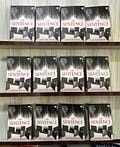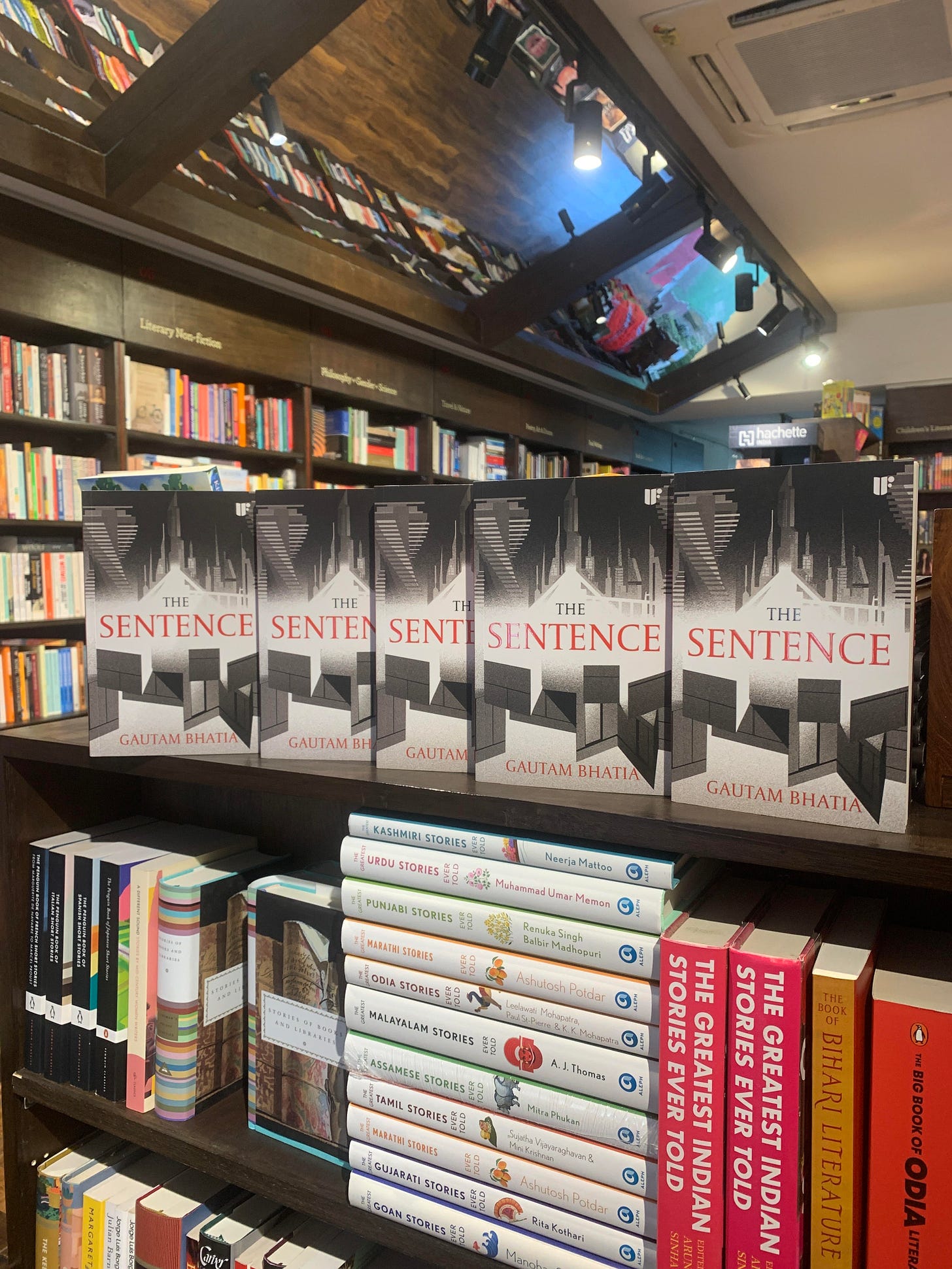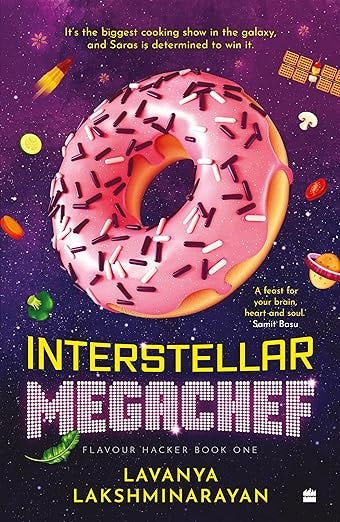Words for Worlds - Issue 81
Hello everyone, and welcome to another issue of Words for Worlds. Somehow, the chronology of issues appears to have been messed up this month, and I’ve ended up publishing on the second and fourth Mondays of the month, instead of the first and third. Normal service will resume from November.
It’s perhaps fortunate, though, because today is the day that The Sentence is finally out in the world (no more that ambiguous “pre-order” phrase). It’s been trickling into various bookshops - including my childhood bookshop, Midland - which put out the sweetest Instagram post you’ve ever seen over the past week, but today is the official “book birthday,” so to say. You should now be able to find it in your local bookshop, and of course, it’s available to order online.
If you’re still making up your mind whether or not to get it, Scroll has run the opening pages of the Prologue, so hopefully that will tip you over the edge!
This photo is from the venerable Bookworm bookshop in Bangalore, always and ever a welcoming home for Indian SF:
And this is from The Bookshop Inc in Delhi:
Also, this week the Delhi Science Fiction Reading Circle completed two years, with a long hard look at the famous - and controversial - The Windup Girl. As always, if you’d like to join our Discord, drop me a message.
What I’m Reading
I’ve read about the Algerian Revolution and its aftermath from a few different sources: Elaine Mokhtefi’s Algiers, Third World Capital, which traces the rise and fall of Algiers as a revolutionary hub after Independence; Henri Alleg’s Algerian Memoirs, from the armed struggle to Independence and then the coup; and more recently, of course, Joseph Andras’ Tomorrow They Will Not Dare to Murder Us. Over the last few months, I’ve also been listening to the Thawra podcast on the revolutionary history of the modern Middle-East, and Algeria features as an inspiration for the Palestinian revolution. All these sources formed a certain mental picture of mid-20th Century Algeria in my head - if not a romantic picture exactly, then something close to it.
Assia Djebar’s Algerian White takes that picture as it it were a mirror, and shatters it into pieces. Ostensibly, it is about the writer’s three close friends - all intellectuals and writers - who were murdered by the post-Independence regime; but what it turns into is a grim accounting of what, at times, feels like a Stalin-level purge of a nation’s intellectual class. Through vignettes, Djebar introduces us to a character, painting them in beguiling colours, drawing us closer to them - and then telling us exactly how the regime murdered them (and just in case you let yourself believe that these might be fictionalised accounts, the end of the book - in the vein of Donald Woods’ biography of Steve Biko - has the actual list of the murdered people, with their ages at the time of their death). And the impact of this is magnified a thousandfold because Djebar intersperses these character vignettes with moving - almost lyrical - prose about the hopes and dreams of Algerian independence: so, as the reader, you are constantly unsettled, your expectations from the book never lasting past the next section break. Much like Yesterday’s Tomorrow, this is a heartbreaking account of history’s what-ifs.
Joseph Brodsky writes of Danilo Kis’ A Tomb for Boris Davidovich, that “his [i.e., Kis’s] art is more devastating than statistics.” That, I think, is a perfect description of Algerian White. This is not an easy read by any means, but one week on, I can’t stop thinking about it: perhaps the best compliment that you can pay to a book!
What’s Happening at Strange Horizons
Strange Horizons turns 25 years old this year, and we’re doing a podcast series about it that you can check out here. Also, the October 14 issue has a review of the Ursula Le Guin Prize award shortlist by the inimitable M.L. Clark, who is always worth a read.
The Indian Scene
Amal Singh’s The Iron Queen - sequel to the fantastic His Majesty’s Tiger - is now available as an Audible Original (here).
Lavanya Lakshminarayan’s Interstellar Megachef has an Indian edition, and can be pre-ordered from Amazon here.
Recommendations Corner
Arula Ratnakar - one of my favourite writers of “hard” SF - is back with a new novella in the latest edition of Clarkesworld, called “Fractal Karma.” I love Ratnakar’s work because her stories are always grounded within highly advanced concepts of mathematics and physics, but she has a unique genius of fitting them into a science fiction story in a way that the concept and the narrative blend together seamlessly - and at the end of it, you always end up feeling more intelligent than when you began. I’m around halfway through this, and I can already say that I recommend it strongly.






